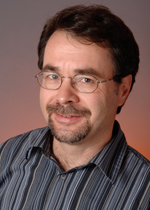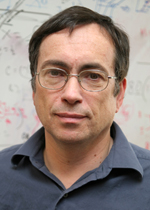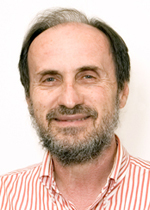Three Florida State researchers named American Physical Society fellows



Their scientific research takes them in different directions, but three faculty members at The Florida State University now have one important thing in common: Each has just been elected a fellow of the American Physical Society (APS).
With 46,000 members, the APS (www.aps.org) is the nation's largest and most prestigious professional society dedicated to the advancement of physics research and knowledge. Election to fellowship in the APS is limited to no more than one-half of 1 percent of the society's membership and is a significant recognition by a scientist's peers of his or her outstanding contributions to physics.
The Florida State faculty members selected as APS fellows for 2008, and the language provided on their APS citations, are as follows:
"Congratulations on being elected APS fellows," Kirby Kemper, Florida State's vice president for Research, wrote to the three researchers. "What makes each of your selections particularly impressive is that you were each elected from a different APS division — Rafael in Biological Physics, Alex in Condensed Matter and Sam in Nuclear Physics. This breadth of excellent research shows that not only are you carrying out world-class work, but that The Florida State University is developing the broad depth needed to carry us forward in important areas of science."
Tabor joined the Florida State faculty in 1979. During his tenure, he has conducted research that has helped to unravel some of the mysteries of the way protons and neutrons combine to form nuclei, the hearts of atoms. In particular, Tabor has focused on the changes caused by large imbalances in the numbers of protons and neutrons, which play a crucial role in the way elements are formed in astrophysical processes.
"My election as a fellow of the American Physical Society is an honor for me and for Florida State University," he said. "It provides national recognition both of my work and that of our nuclear physics group at FSU, which has been ranked eighth in the nation among public institutions."
In his research, Brüschweiler works to increase scientists' understanding of protein dynamics behavior, and how it is affected by interactions with other proteins, peptides and small ligands. Such an understanding is important for researchers as they attempt to develop new treatments for a variety of diseases.
"This is a tremendous honor," Brüschweiler, a member of the Florida State faculty since 2004, said of being named an APS fellow. "It recognizes our research on biomolecular dynamics, which lies at the interface of physics, chemistry and biology. Protein molecules are intrinsically flexible, and nuclear magnetic resonance spectroscopy (NMR) greatly contributes to their experimental characterization. Due to the complexity of proteins, computational and analytical physical models play an important role in the interpretation of the experiment. In our research, we bring new experimental and computational approaches together to enhance the understanding of proteins and their function."
Gurevich, a condensed matter/materials theorist, came to Florida State along with the Applied Superconductivity Center, which moved here from the University of Wisconsin in 2006. His research focuses on the theoretical understanding of superconductors under extreme conditions of strong electric currents, high magnetic fields and strong radio-frequency electromagnetic fields. The results of these theoretical works are important for the development of new superconducting materials for power applications, particularly powerful high-field magnets and new generations of particle accelerators.
"It is indeed a great honor for every physicist to be elected an APS fellow," Gurevich said. "It also recognizes the invaluable contributions of my colleagues from the Applied Superconductivity Center and collaborators from other groups all over the world who have made my work possible."